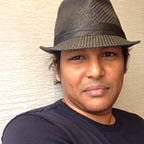Authentically Curious Founders
The startup founders with the best chance to scale with their startups are “authentically curious”.
To create the best possible conditions for successful outcomes, they become the best students they can to learn how to work with:
— People
— Systems
— Markets
To build and operate a startup, a successful founder needs to show an insatiable curiosity to learn, understand, and implement what they learn on a daily basis.
A startup is a high-growth business that either improves, creates a need in the world and then automates that solution at a pace that compresses time, usually with technology.
Since startups use technology to scale their solution, “systems” founders (engineers, designers, product managers) have been most favored — wherever “people” founders (sales people, hiring savants, marketing gurus) have figured out how to design systems to scale, they’ve won the VC’s trust.
But all of this is *useless* without the right market. You can stumble upon a big market because of a personal experience, look at the obvious markets out there, or have worked in a market for years. Engineers solving technology problems are still solving a need in a massive market they’ve identified.
Most VCs look to experience in a market to measure“founder-market fit” because its easier than betting on a newbie in a market. VCs are betting on whether this founder can hire and sell (people) build (systems) but the market bet is absolute.
Every good founder has an intuitive starting understanding of their target market thats strengthened by their curiosity and appetite to learn over time..
When I started Sourceeasy, I’d been working in international supply chain for over 15 years — That was the starting point to winning my investors trust and raising $5.8M. When it went under, I was able to start Manufactured with a similar (expanded) market hypothesis with a different approach because the market was still massive, I now had 5+ years of additional experience and the learnings — All these factors helped me keep my main investors’ trust and support (despite losing all their equity when SE went down).
But chasing mastery of the 3 tentpole aspects of building a startup is essential to Survival and Growth as a Leader.
Usually founders do not start out curious about all 3 of these tentpoles that drive the creation and growth of a successful startup. They either start out a student of people (sales), systems (engineer).
I was an out-and-out salesperson when I started my journey.. Over time, I put in long hours to learn how to hire, manage (people) and design and run product (systems) while growing my marketing skills (systems + people).
Founders expand their skills / knowledge with a combination of:
/ learning about new markets / systems / people traits from experts, books, news, or events
/ asking questions and hiring the best people who can give you insights
/ testing concepts and hypotheses to opinions and measuring results.
/ experience
Your ability to hire / sell is dependent on your ability to study people behavior, traits and use that to manage your interactions with a diverse set of people — This is also useful when pitching / building the “cult” around your startup with messaging (marketing) — Systems founders struggling to study people fail to raise from VCs since they cannot articulate the idea well enough.
Your ability to build is dependent on your ability to understand code, systems and how they interact with people and automate / scale the solution you’re providing. Product / Engg is usually the beneficiary. Great product founders either combine systems with people or market — People founders often over-sell their ideas and fail at being credible because they do not understand how to systematically scale their startup.
To scale as your startup grows, Authenticity has to flow through everything you learn or do. The greatest founders that become world-class leaders and CEOS are learning machines — They are genuinely authentic students of people, systems and markets.
Publicly you see the best founders’ learning modes are a proxy for their superpower — book lists are usually shared by “systems” founders since those are the tools they’re most comfortable with. But “people” founders will share conversations, interactions that they learn from since thats where they grow the most.
“Scaling” as a CEO-Founder is often dependent on leadership thats not about personality (introvert / extrovert). It is more about authentic moral leadership that comes from an exponentially growing knowledge / understanding of people / systems over time.
The founder price of being an inauthentic student is usually founder discord, inability to scale with your startup and often an exit from the startup
Founders who usually“don’t scale” or exit their startup are:
/ only interested in 1 of the 3 (drop out at Ser A)
/ interested in 2 of the 3 (become specialized VP / C-suite)
/ are inauthentic about all 3 and are good ONLY at a skill (founder-conflict at Seed or earlier)
/ cannot learn or grow quick enough to adapt to the growing of the startup.
Ultimately a startup’s survival will depend on your study of the “market”
But as a founder, your survival inside that startup will depend on your “people” and “systems” learnings.
Stay authentic, Stay curious. We have miles to go.
utekkare,
Pranay
